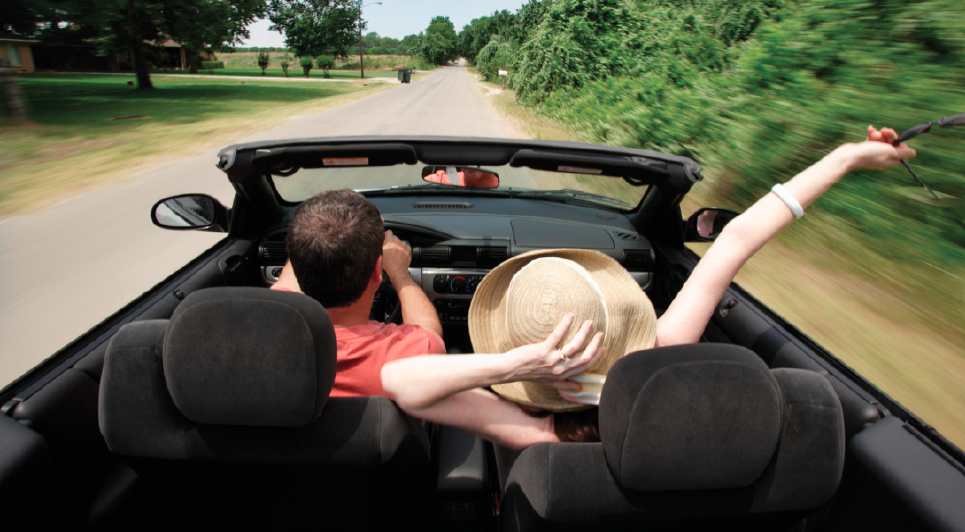By Christy Barritt
The Great American Road Trip
Is visiting every state on your bucket list? It’s on Randy Olson’s. Olson, who has a self-proclaimed “data tinkering” hobby, set out to find the quickest driving route that would hit popular national landmarks—both natural and historical—in all of the lower 48 states and Washington, D.C.
The route included 50 different stops, including the Grand Canyon, the Alamo, Mount Vernon, Graceland, the White House, the Statue of Liberty, and more. He used a genetic algorithm to find the best route out of 2,500 possibilities. He estimated that if you didn’t sleep, stop, or hit traffic, the trip would take approximately 9.33 days of traveling.
Olson tackles one new challenge each week on his popular blog. He also developed the optimal search path for finding the main character of the Where’s Waldo? books. The epic road trip map can be found online (randalolson.com).
Baby Names on the Verge of Extinction
Nameberry.com compiled a list of names that are about to become extinct. Some names, once popular, are rarely ever used anymore when parents name their children. The 15 monikers highlighted by Nameberry were only given to five babies each in 2013. That number is the lowest counted by the Social Security Administration. Once usage dips below that, the name disappears off the official radar.
Though they have roots that are centuries old, the names that are about to disappear are: Alpha, Barbra, Claudine, Nanette, Sheba, Sondra, Thisbe, Zelma, Elmo, Icarus, Inigo, Llewellyn, Remus, Sherwood, and Waldo.
Starbucks Engages in Race Relations
The Starbucks coffee chain announced a race relation initiative in the spring. The company was trying to stimulate conversation and debate about racial issues in America by getting employees to engage with customers about the subject. To launch the campaign, the company purchased a full-page ad in the New York Times. As part of this initiative, Starbucks baristas had the option as they served customers to write #racetogether on a customer’s cup and engage in conversation about race.
Starbucks launched this program on March 16 after several months of consultations with employees and as a result of the protests that began after the shooting of 18-year-old Michael Brown in Ferguson, Missouri. However “the Starbucks plan is a flawed one,” Gwen Ifill, coanchor of the television news program PBSNewsHour wrote. “A ‘conversation’ about race cannot be a fleeting one. It certainly cannot be an under-caffeinated one.”
Jim Olson, a Starbucks spokesman, said that March 22 had been communicated to its stores previously as the planned last date for the cup-writing part of the campaign. He also said that the change wasn’t a response to criticism.
EPA Wants to End Backyard Barbecues . . . Sort Of
The Environmental Protection Agency is funding a new study on propane grill emissions and their effect on the air we breathe. The $15,000 study is being done by University of California-Riverside. They’re investigating whether a special drip tray, as well as an emission removal system that includes the use of a “secondary air filtration” system, would help reduce emissions and therefore make the air healthier for those around.
When Missouri state legislator Eric Schmitt heard about this EPA sponsored study, he kicked off a campaign called #porksteakrebellion. “The idea that the EPA wants to find their way into our backyards when we’re congregating with our neighbors . . . it’s ridiculous and it’s emblematic of an agency that’s sort of out of control,” said Schmitt. He called on people to grill in their backyard as a “peaceful protest.”
The EPA said that it doesn’t regulate people’s backyard barbecues, and the study is a part of a student sustainability grant.
 Christy Barritt is an award-winning author in Chesapeake, Virginia. She and her husband, Scott, have two sons (christybarritt.com).
Christy Barritt is an award-winning author in Chesapeake, Virginia. She and her husband, Scott, have two sons (christybarritt.com).



Comments: no replies